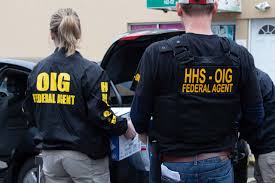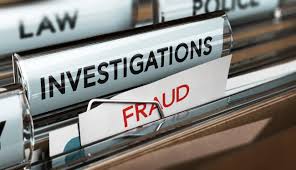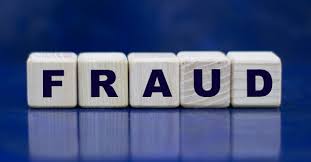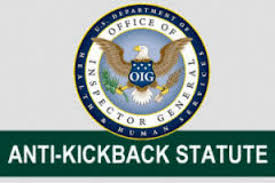HHS-OIG Warns Drug and Device Companies on Speaker Program Fraud

In a far-reaching action, the Health and Human Services – Office of Inspector General (HHS-OIG) issued a Special Fraud Alert underscoring the “inherent fraud and abuse risks” associated with company-sponsored speaker programs. Copy of Special Alert Here.
HHS-OIG’s Fraud Alert is an important warning to pharmaceutical and medical device companies. It directly applies to U.S. companies’ domestic speaker programs, but the analysis and observations have broad application to international speaker programs. The Justice Department and the SEC are likely to take note of the HHS-OIG Fraud Alert and incorporate similar principles when evaluating international speaker programs.
HHS-OIG cited its experience investigating and resolving fraud cases under the anti-kickback statute (AKS) involving pharmaceutical and medical device companies and remuneration provided to health care professionals (HCP). HHS-OIG listed several examples of questionable speaker programs, including:
- Selected high-prescribing HCPs to be speakers and rewarded them with lucrative speaker deals (e.g., some HCPs received hundreds of thousands of dollars for speaking.

- Conditioned speaker remuneration on sales targets (e.g., required speaker HCPs to write a minimum number of prescriptions in order to receive the speaker honoraria);
- Held speaker programs at entertainment venues or during recreational events or otherwise in a manner not conducive to an educational presentation (e.g., wineries, sports stadiums, fishing trips, golf clubs, and adult entertainment facilities);
- Held programs at high-end restaurants where expensive meals and alcohol were served (e.g., in one case, the average food and alcohol cost per attendee was over $500); and
- Invited an audience of HCP attendees who had previously attended the same program or HCPs’ friends, significant others, or family members who did not have a legitimate business reason to attend the program.
The AKS defines a criminal offense for any person to solicit, receive, offer or pay any “remuneration” to induce or reward referrals for, or orders of, items or services reimbursable by a Federal health care programs. The term “remuneration” includes money or anything of value. An AKS violation is punishable by up to 10 years imprisonment and/or a fine of $100,000, or both. A criminal conviction also can result in mandatory exclusion from Federal health care programs, including Medicare and Medicaid.
While speaker programs are allegedly designed to educate and inform other HCPs “about the benefits, risks, and appropriate uses of company medicines.,” the HHS-OIG stated it was “skeptical about the educational value” of speaker programs.

HHS-OIG noted that its investigations generally revealed that HCPs often receive generous compensation to speak at these programs where the circumstances are “not conducive to learning or to speak to audience members” who have a legitimate educational need to attend the event. HHS-OIG noted that one purpose of these events is “to induce or reward referrals.” Interestingly, HHS-OIG specifically cites studies suggesting that HCPs who attend these events are more likely to prescribe or order that company’s products.
In view of the risk that these events may skew HCP clinical decisions, HHS-OIG noted that HCPS have access to many other sources of information to obtain information about drugs and devices. In particular, HHS-OIG stated that HCPs can review information from online resources, package inserts, third-party educational conference, and medical journals.
HHS-OIG warned parties involved in speaker programs that they “may be subject to increased scrutiny.” Specifically, HHS-OIG identified suspect parties as drug or device companies that organize speaker program, HCP speakers and attendees who receive food and drink at the event.
HHS-OIG also warned physicians who enter into consulting or speaker agreements that such arrangements could be an improper inducement “to prescribe or use [company] products.” HHS-OIG warned that physicians “consider the propriety” of any proposed relationship with a company, and “avoid such arrangements where the “basis” for a physician’s compensation is the “ability” to prescribe a drug or use a device or refer your patients for particular services or supplies.
To provide further guidance on the lawfulness of speaker programs, HHS-OIG listed the following program characteristics as examples of situations that alone, or together, would be suspect under AKS:

- The company sponsors speaker programs where little or no substantive information is actually presented;
- Alcohol is available or a meal exceeding modest value is provided to the attendees of the program (the concern is heightened when the alcohol is free);
- The program is held at a location that is not conducive to the exchange of educational information (e.g., restaurants or entertainment or sports venues);
- The company sponsors a large number of programs on the same or substantially the same topic or product, especially in situations involving no recent substantive change in relevant information;
- There has been a significant period of time with no new medical or scientific information nor a new FDA-approved or cleared indication for the product;
- HCPs attend programs on the same or substantially the same topics more than once (as either a repeat attendee or as an attendee after being a speaker on the same or substantially the same topic);
- Attendees include individuals who don’t have a legitimate business reason to attend the program, including, for example, friends, significant others, or family members of the speaker or HCP attendee; employees or medical professionals who are members of the speaker’s own medical practice; staff of facilities for which the speaker is a medical director; and other individuals with no use for the information;
- The company’s sales or marketing business units influence the selection of speakers or the company selects HCP speakers or attendees based on past or expected revenue that the speakers or attendees have or will generate by prescribing or ordering the company’s product(s) (e.g., a return on investment analysis is considered in identifying participants);
- The company pays HCP speakers more than fair market value for the speaking service or pays compensation that takes into account the volume or value of past business generated or potential future business generated by the HCPs.

HHS-OIG cited its “significant concerns” about the legality of speaker programs, noting that drug and device companies “often offer or pay healthcare professionals “to induce (or solicit or receive in return for) ordering or prescribing items paid for by Federal health care programs.
HHS-OIG cited the likely reduction of in-person speaker programs given the pandemic emergency. If companies decide to resume such programs after the pandemic emergency, companies are encouraged to assess the risks and need for in-person speaker events.















1 Response
[…] More issues in domestic corruption for pharma? Mike Volkov takes a look in Corruption Crime and Compliance. […]